
Canned Heat is an American blues and rock band that was formed in Los Angeles in 1965. The group has been noted for its efforts to promote interest in blues music and its original artists. It was launched by two blues enthusiasts Alan Wilson and Bob Hite, who took the name from Tommy Johnson's 1928 "Canned Heat Blues", a song about an alcoholic who had desperately turned to drinking Sterno, generically called "canned heat". After appearances at the Monterey and Woodstock festivals at the end of the 1960s, the band acquired worldwide fame with a lineup of Hite (vocals), Wilson, Henry Vestine and later Harvey Mandel, Larry Taylor (bass), and Adolfo de la Parra (drums).

Look at the Fool is the ninth and final studio album by American singer-songwriter Tim Buckley, released on September 13, 1974, by DiscReet Records.
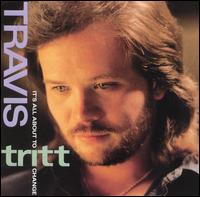
It's All About to Change is the second studio album by American country music singer Travis Tritt, released on Warner Bros. Records in 1991. The tracks "The Whiskey Ain't Workin'", "Nothing Short of Dying", "Anymore", and "Here's a Quarter " were released as singles; "Bible Belt" also charted from unsolicited airplay. "Anymore" was the second single of Tritt's career to reach Number One on the Hot Country Songs charts. Overall, this is Tritt's highest-certified album; with sales of over three million copies in the U.S., it has been certified 3× Platinum by the RIAA. He recorded the song "Bible Belt" for My Cousin Vinny in collaboration with the band Little Feat, and this placement gained him some exposure.

Future Blues is the fifth album by American blues and rock band Canned Heat, released in 1970. It was the last to feature the band's classic lineup, as Larry Taylor and Harvey Mandel had both departed by July 1970, prior to its release to record with John Mayall and songwriter Alan Wilson died shortly after on September 3, 1970. It was also the only classic-era Canned Heat studio album to feature Mandel, as Henry Vestine had been the lead guitarist on the previous albums. Their cover of "Let's Work Together" by Wilbert Harrison became a hit. "London Blues" features Dr. John. It was re-released on CD in 2002 by MAM productions with five bonus tracks.

Living the Blues is the third album by Canned Heat, a double album released in late 1968. It was one of the first double albums to place well on album charts. It features Canned Heat's signature song, "Going Up the Country", which would later be used in the Woodstock film. John Mayall appears on piano on "Walking by Myself" and "Bear Wires". Dr. John appears on "Boogie Music". The 20-minute trippy suite "Parthenogenesis" is dwarfed by the album-length "Refried Boogie", recorded live.
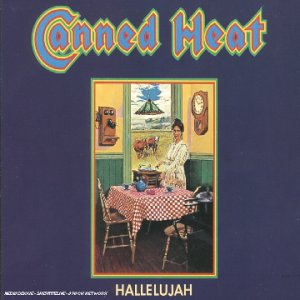
Hallelujah is the fourth album by Canned Heat, released in 1969. It was re-released on CD in 2001 by MAM productions with four bonus tracks. It was the last album to feature classic lineup mark 1, as Vestine left the band prior to Future Blues.

The Baron is an album by American country singer Johnny Cash, released on Columbia Records in 1981. The title track was a top ten hit, and three singles in all — including "Mobile Bay" and "The Reverend Mr. Black" / "Chattanooga City Limit Sign" — were released, though the latter two were rather unsuccessful in the charts, peaking at No. 60 and No. 71.
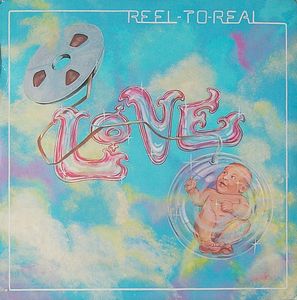
Reel to Real is the seventh and final studio album by the American rock band Love, released in 1974 by RSO Records.
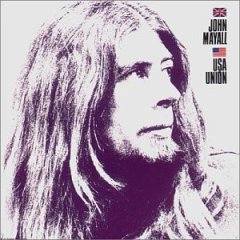
USA Union is a 1970 album by blues musician John Mayall, featuring Harvey Mandel on guitar, Larry Taylor on bass and Don "Sugarcane" Harris on violin. The album was recorded on July 27 & 28th, 1970 at Larrabee Studios in LA and released by Polydor later in the same year John Mayall - Discography.

Harvey Mandel is an American guitarist best known as a member of Canned Heat. He also played with Charlie Musselwhite and John Mayall as well as maintaining a solo career.

Canned Heat '70 Concert Recorded Live in Europe is a 1970 live album by Canned Heat. The album is taken from various locations on live concert European tour right before Alan Wilson's death and is the band's first officially released live album.
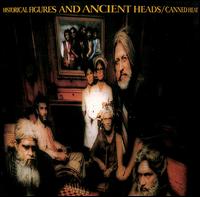
Historical Figures and Ancient Heads is the eighth album by Canned Heat, released in 1971. It was the first album not to feature original member and songwriter Alan Wilson who had died the previous year, and their bassist Larry Taylor, who had left to join John Mayall's band. Featuring new guitarman Joel Scott Hill and Little Richard on "Rockin’ With the King". The record also includes Tony de la Barreda on bass, who left with Hill after this album and subsequent tour.
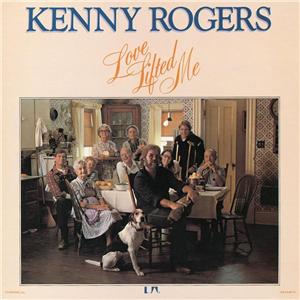
Love Lifted Me is the first solo studio album by Kenny Rogers for United Artists Records, released in 1976. This is Rogers' first solo effort following the break-up of The First Edition earlier that year.
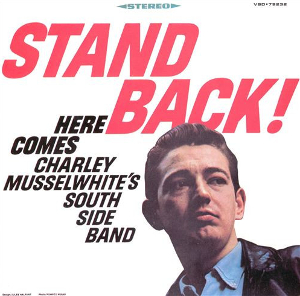
Stand Back! Here Comes Charley Musselwhite's South Side Band is the 1967 debut album of American blues-harp musician Charlie Musselwhite, leading Charlie Musselwhite's Southside Band. The Vanguard Records release brought Musselwhite to notability among blues musicians and also helped bridge the gap between blues and rock and roll, musically and in marketing. With rough vocals and notable performances on harmonica, guitar and bass guitar, the album was critically well received. It introduced Musselwhite's signature song, his cover of Duke Pearson's "Cristo Redemptor".
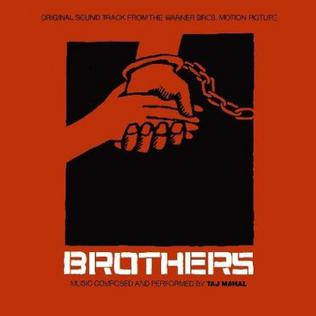
Brothers is an album by American blues singer-songwriter and instrumentalist Taj Mahal. It was recorded in August 1976 at Conway Recorders Co. in Hollywood and released the following year by Warner Bros. Records. It is the soundtrack to the 1977 film Brothers, with songs that music critic Richie Unterberger described as being "in the mode that Mahal was usually immersed in during the mid-1970s: bluesy, low-key tunes with a lot of Caribbean influence, particularly in the steel drums."
Music from Free Creek is an album from a series of 1969 "super session" recordings by Free Creek, a group composed of a number of internationally renowned musical artists of the time, including Jeff Beck, Eric Clapton, Keith Emerson, Buzz Feiten, Mitch Mitchell and Linda Ronstadt. Joe Viglione from www.allmusic.com has stated that "Music from Free Creek is a super session album, where the musicians are playing for the fun of it, and that comes across. The material doesn't get bogged down in 'names'; it just flows."

Tone Tantrum is an album by American jazz pianist Gene Harris recorded in 1977 and released on the Blue Note label.
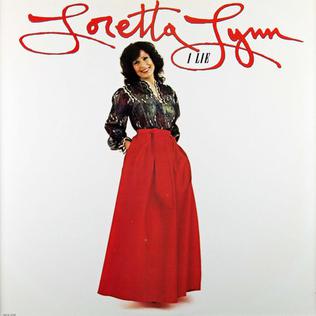
I Lie is the thirty-fourth solo studio album by American country music singer-songwriter Loretta Lynn. It was released on February 1, 1982, by MCA Records.

Edward Hoh was an American rock drummer who was active in the 1960s. Although primarily a studio session and touring drummer, Hoh exhibited a degree of originality and showmanship that set him apart and several of his contributions have been singled out for acknowledgment by music critics.

Woodstock – Back to the Garden: 50th Anniversary Experience is a live album by various artists, packaged as a box set of ten compact discs. Released by Rhino Records during the summer leading up to the fiftieth anniversary of the Woodstock Music and Art Fair, it contains selections from every performance at the music festival, which took place on August 15–18, 1969, in Bethel, New York. The discs also include stage announcements and miscellaneous audio material. The package contains essays by producer Andy Zax and Jesse Jarnow, details about the performers and notable festival figures, and photographs. This box set is a compilation derived from its limited edition parent box set. A smaller three-CD or five-LP sampler was also released.



















